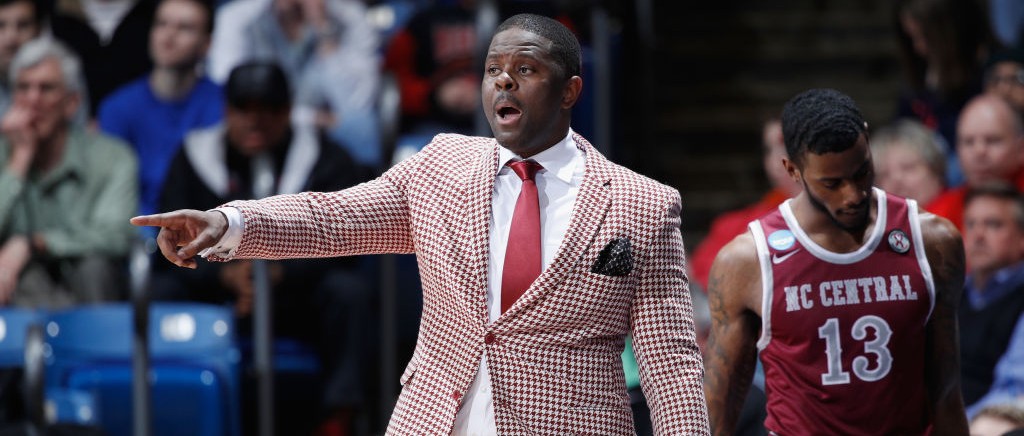The murder of George Floyd by a police officer in Minnesota, who had his knee on Floyd’s neck for nearly nine minutes while he was handcuffed, has sparked nationwide protests of the continuing police brutality toward the black community.
Many prominent athletes have spoken up about the issue, as they have in the past, from Stephen Jackson, a childhood friend of Floyd’s, to Jaylen Brown, LeBron James, and others. Some in the Bundesliga in Germany made sure to make statements on the pitch during games over the weekend, and even Trevor Lawrence, Clemson’s star quarterback and the presumptive top quarterback taken in next year’s NFL Draft, issued tweets calling out racial injustice and supporting his teammates, the majority of whom are black.
It is that latter point, the high percentage of high-level college athletes who are black, that makes some like North Carolina Central head basketball coach LeVelle Moton upset at the silence of so many high profile head coaches in college athletics — most of whom are white — in a situation such as this. Moton spoke to the issue on ESPN radio, highlighting how coaches seem to fall silent on issues that affect their athletes but don’t directly impact them.
Thanks to @LeVelleMoton for joining @MedcalfByESPN & @ESPN_Schick for 40 minutes today, on "Sunday Morning."
As #GeorgeFloydProtests take place around the country,
he calls for Power 5 coaches to stand up for their players.Full Interview –> https://t.co/8cniHIIUJ2 pic.twitter.com/TDqyOIjlyj
— ESPN Radio (@ESPNRadio) May 31, 2020
“I come across the timeline of coaches, and everyone is silent. And I have a major issue with that. For years I’ve never really said anything, but now I think enough is enough. Here’s the harsh reality, we have coaches in Power 5 football and basketball coaches, the reality is a lot of these coaches have been able to create generational wealth. I mean, their grandkids kids are going to be able to live a prosperous life because athletes who were the complexion of George Floyd was able to run a football, throw a football, shoot a basketball, or whatever have you. So they have benefited greatly from athletes who look like George Floyd, and many more.
“But whenever people the complexion of George Floyd is killed, assassinated, murdered in the street, in broad daylight, they’re silent, and I have a problem with that because it seems like black lives matter to them whenever they can benefit from it, whenever they’re getting them a first down or catching an alley-oop or shooting a three or whatever. But when it’s time for the humanity to speak up on behalf of those student-athletes, it’s silence. It’s crickets. So my problem is, if the murder of black Americans is too risky of an issue for you to stand up as a leader, then who are they really playing for.”
It’s a strong statement from Moton and one that should be addressed. That it is in some way a controversial stance to admit racism exists and that black people shouldn’t be killed or brutalized by police when unarmed, one that coaches are afraid to take that stance out of fear that they may lose boosters or fans, is a significant issue, particularly given the benefit they receive from players who play (without pay, I should add) for them and face these issues in real life.







